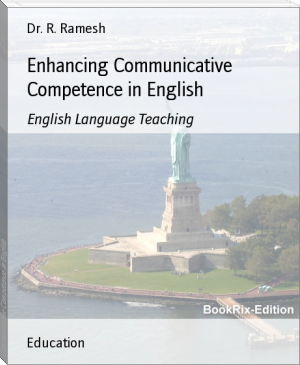Multicultural Skills (manual coursebook), Asier Barandiaran, Dmitrii Enygin, Venera Midova [fiction novels to read TXT] 📗

- Author: Asier Barandiaran, Dmitrii Enygin, Venera Midova
Book online «Multicultural Skills (manual coursebook), Asier Barandiaran, Dmitrii Enygin, Venera Midova [fiction novels to read TXT] 📗». Author Asier Barandiaran, Dmitrii Enygin, Venera Midova
Higher stress
Inflexibility
Irritability
Low productivity
Disorganization
Suspicion
Poor teamwork
Indecision
What are the benefits of effective conflict management? Discuss the impact of appropriate conflict management on the people and productivity at the work unit level.
Optional task:
In order to effectively resolve conflict it is helpful to first identify the source of the conflict. There are many sources or causes of conflict in the workplace. Some of the categories included are:
Different perceptions
Making assumptions
Judging others
Biases and prejudices
Inaccurate or incomplete information
Past Relationships
Job Dissatisfaction
Opinions
Personalities
Communication Styles
Values
Backgrounds
Interests
Wants, needs, preferences or goals
As a group, pick one of professional situations to work on.Which of the causes that we just talked about probably led to the conflict in the scenario chosen by your group?
Case Study:
Joe is an analyst in your department at the Louisiana Legislative Auditors. Joe is a bright and young recruit from Louisiana State University. He sticks out in your department for many reasons. First, Joe learns on the job quickly. He turns in his work faster than the others and the work is usually more accurate. However, unlike the other analysts in your department, he is loud, animated and is a big talker. You constantly hear him teasing the other co-workers, laughing and talking louder than the others. You and the
other analysts think he is annoying, offensive and you wonder if he is creating a verbally harassing environment.
You are going to have to travel with Joe to a local state agency to conductan audit, and you are worried about how to handle Joe. You don’t wanthim to blow this big assignment for you. In addition, you are not looking forward to spending so much time working with this annoying co-worker.
Consider the next four questions:
How important is the issue to you?
What is the nature of the relationship with the other person?
What are the possible consequences?
What conflict management style should you use, if any?
Case Study:
You work in a back office area in the Louisiana Department of Environmental Quality (DEQ). Your work is detailed and tedious and you require quiet to ensure that your work is accurate. However, Sabrina, your co-worker enjoys listening to the radio. You can hear it at your desk most days. It is, in your opinion, too loud for the office especially since everybody works in cubicles rather than offices with doors on them.
You’ve heard
contact with external customers so that she can listen to her favorite songs on the radio. Sabrina is well-liked and has an important social position inthe office. Furthermore, you haven’t heard anybody else complain aboutthe music. You spend a lot of time trying to concentrate and tune out the music.
Consider the next four questions:
How important is the issue to you?
What is the nature of the relationship with the other person?
What are the possible consequences?
What conflict management style should you use, if any?
Case Study:
You are leading a team that is responsible for completing a project that involves producing a report that is due in one month. Sam, one of the team members has not drafted her part of the report because she says she is too busy with her other duties. In the last team meeting, you told her that she had until today to catch up. But she didn't even come to the meeting.
Today, you called her to ask her why she didn’t show up to the meeting and it didn’t go exactly how you planned. Sam questioned your authority and said that she is currently focusing on other projects. You’ve been asked to lead this team and your supervisor expects you to deal with any problems that come up in the team yourself. This project is important to the agency and is a high visibility assignment. You are hoping to prove yourself in the organization and need Sam to do her part on the project.
Consider the next four questions:
How important is the issue to you?
What is the nature of the relationship with the other person?
What are the possible consequences?
What conflict management style should you use, if any?
Creative activity:
The Elephant List. This activity mingles problem resolution, communication, and team building. It is relevant for an adult workplace situation, or sports and academic teams. Often times when a workplace is experiencing contention, or workers are unhappy with the environment they work in, no one feels safe enough to express their concerns. No one feels like their opinion on how to make the team better would be valued.
This activity allows for open, honest communication that will help the team experience camaraderie and allow management to solve real issues. For students this is a nice opportunity to experience one of the professional cases and try solving them.
Place an experienced and trusted student in charge of this activity. Prepare some sticky notes or pieces of paper with elephants on them and give each individual their own set.
Begin the exercise by explaining to the students that the objective of the activity is to create an environment conducive to open communication. Explain to them that they don’t need to fear reproach for expressing their honest concerns or the “elephant in the room.”
Have each student spend five minutes writing one of their “elephants” and label them according to the C-I-A principles: issues they have control over, issues they can influence, or issues they have to accept.
Collect the elephants and read them aloud to the group. Place each elephant on a circular or U-shaped chart with sections for C, I, and A and put the elephants in the section the individual chose.
Discuss with the group whether the elephants in each section should be in the section they were placed.
Once agreed upon, let the A elephants go and spend time discussing ways to resolve the C and I elephants. Ask questions through the four W’s.
“Why are we doing this?/Why is this happening?”
“What are we doing about it?”
“Who can resolve this issue?”
“When can we resolve this?”.
Creative activity:
ImprintPublication Date: 06-06-2021
All Rights Reserved





Comments (0)